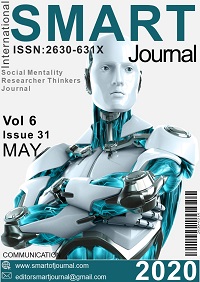Author :
Abstract
Yönetim ve organizasyon etkinliklerinde insanların belirlenmiş amaçlara doğru yöneltilmesi, iş birliği sergilenmesi, uyum hedeflenmesi, birlikte başarıma ulaşılması önemlidir. İlk insandan bu yana bu yöndeki etkinlikler bir bilgi birikimi oluşturmuştur. Gerek yönetim gerekse organizasyon düşüncesinin gelişimine yönelik geliştirilen teori, yaklaşım veya kuramsal çalışmalar genelde dört ayrı başlıkta ele alınmaktadır. Bunlar; “Klasik (Geleneksel), Neo-Klasik (Beşerî İlişkiler), Modern (Sistemler ve Durumsallık) ve Post-Modern (Yeni ve Güncel)” kuramlar şeklindeki sınıflamadır. Bu çalışma kapitalizmin, yönetim ve örgüt alanındaki kuramsal yapılanmayı direkt veya dolaylı yoldan etkilediği düşüncesinden hareketle hazırlanmıştır. Özelde Klasik Yönetim Kuramları değerlendirilmiştir. Yani Neo-Klasik, Modern ve Post-Modern dönemler çalışma kapsamına alınmamıştır. Klasik kuramlar ilk bölümün konusu olmuştur. Burada, öncülüğünü Frederick Winslow Taylor’un yaptığı “Bilimsel Yönetim”, Henri Fayol’un öncülüğünde geliştirilen “Yönetim Süreci” ve nihayet Max Weber tarafından öne sürülen “Bürokrasi” kuramları üzerinde durulmuştur. Çalışmanın ikinci bölümünde kapitalist düşünce özlü biçimde açıklanmıştır. Üçüncü bölümde ise kapitalizmin bu kuramlar üzerindeki etkisi üzerinde durulmuştur. Çalışma, genel değerlendirme ve sonuç ile bitirilmiştir.
Keywords
Abstract
In management and organization activities, it is important to direct people towards specified goals, to exhibit cooperation, to target harmony and to achieve success together. Since the first person, activities in this direction have created an accumulation of knowledge. Theories, approaches or theoretical studies developed for the development of management and organizational thoughts are generally addressed under four different titles. These are the classification as "Classical (Traditional), Neo-Classical (Human Relations), Modern (Systems and Contingency) and Post-Modern (New and Current) theories. This study has been prepared with the idea that capitalism directly or indirectly affects the theoretical structure in the field of management and organization. In particular, Classical Management Theories were evaluated. In other words, Neo-Classical, Modern and Post-Modern periods are not included in this study. Classical theories became the subject of the first chapter. The theories of "Scientific Management" led by Frederick Winslow Taylor, "Management Process" developed under the leadership of Henri Fayol and "Bureaucracy" proposed by Max Weber were focused on. In the second part of the study, capitalist thought is explained succinctly. In the third chapter, the effect of capitalism on these theories is emphasized. The study was completed with a general evaluation and result.





